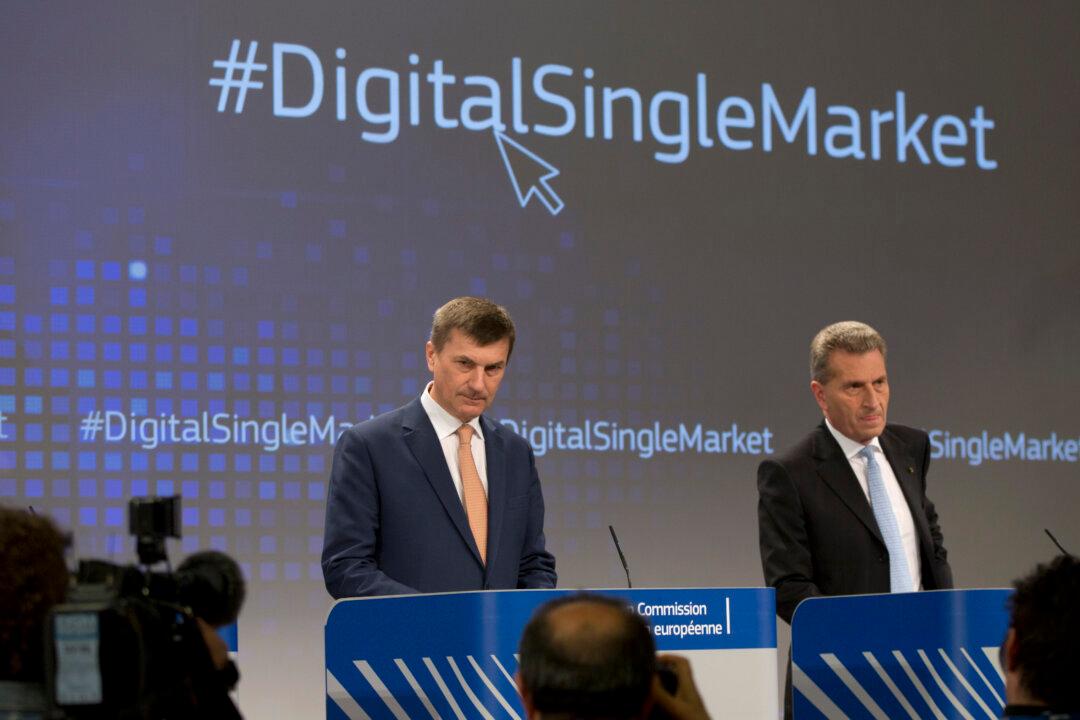BRUSSELS—The European Union has unveiled a long-term strategy to help its technology companies compete with U.S. giants like Google and Amazon by unifying the continent’s digital sector and taking a hard line on abuses by dominant firms.
The plan will mean making e-commerce easier across borders among the EU’s 28 states.
It will also entail a new look at where industry giants may be stifling competition in online trade. That means reassessing the way companies like Google, Amazon, Facebook, or e-Bay handle online trade.
The EU touted the plan as an ambitious effort to foster new companies and create jobs in a region still struggling with the after-effects of the financial crisis.
“Creating a digital single EU market will be a big step in helping European firms to compete on an equal footing,” said Mark Skilton, a professor at the Warwick Business School.





